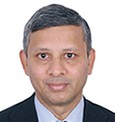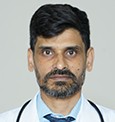Although liver transplant is considered as the last option for patients with end-stage liver disease, it nevertheless offers patients hope for a second chance at life.
Liver transplantation can be done with an organ from a deceased donor (from someone who has died) or a part of an organ from a living donor. Types of transplantation can be deceased donor, living donor, split and domino procedures.
Deceased Donor Liver Transplant
Most liver transplantations use a liver from a deceased donor. In this procedure, the liver comes from a donor who is diagnosed as “brain dead” but whose other organs are functioning. The diseased liver is removed and the donor liver is transplanted. To receive a deceased donor, you are put on a waiting list until a donor becomes available. This can occur at any time, day or night.
There is a massive shortfall of donor livers, meaning that people have to wait sometimes, for considerable lengths of time for a matched deceased donor liver.
Living Donor Transplant
A living transplant comes from a living donor, such as a family member or a close relative, who donates a portion of his or her liver. Because the liver can regenerate, the liver portion remaining in the donor, and the new liver portion in the person receiving the transplant, can grow to normal capacity.
Split Transplant
A split transplant is a procedure in which a deceased donor’s liver is divided and used for two transplant recipients. For example, this procedure can provide liver function to two patients, usually but not always a child and an adult, in need of liver transplantation.
Domino Transplant
A domino transplant involves transplanting a living or deceased donor liver into one recipient, and using that recipient’s original liver for transplantation into another recipient. The first patient’s liver is “dominoed” into the second patient. The first of the liver transplant patients in a domino procedure, who also donates his or her own liver, typically would have a genetic disorder. The disorder of the first patient would not impact the function of the liver in the second transplant recipient.
Auxiliary Liver Transplantation
A complete surgery where donor liver is put along the native liver (without removing it). In a few years time when native liver regenerates immunosuppressant’s could be stopped and transplanted liver atropies.
Swap Liver Transplantation
Swap transplantation is applied in patients without blood group compatible donors. People who want to donate the piece of their liver, if the blood type is not compatible, come to the organ transplant center and prepared for swap transplantation. Some patients due to blood incompatibility they can not take liver from their own donors. Between the two pairs who are facing the same problem the donor and the recipient can be switched. Liver transplant surgery is not recommended for patients who have: heart, lung, or kidney disease; Type 1 diabetes and other life-threatening diseases.
PROCESS :
PRELIMINARY EVALUATION
The preliminary evaluation, called a Phase I Evaluation, is the first step in helping you and the transplant team determine if liver transplantation is an appropriate treatment option. It also enables the transplant team to assess the medical factors related to your liver failure.
The appointment will take about half a day to a full day. Please bring any medications you are taking, all the medical reports and investigation reports. . You can, also, discuss financial implications of liver transplant and post-transplant care. Patients with a history of alcohol dependency are required to remain alcohol free for six months prior to transplant and agree to random screening.
Tests
- Blood tests to help determine the cause of liver disease if this is not already done, to assess your liver function, to assess your kidney function and to determine your blood group.
- Ultrasound scan to view the blood flow to and from your liver, and locate any abnormal masses in the liver.
- Chest X-ray to help detect infection in your lungs and assess the status of your bones.
- Electrocardiogram to help identify any changes in your heart rhythm.
Every patient is evaluated by a liver specialist, called a hepatologist, and a transplant surgeon. The hepatologist will do a full exam, review your health history and discuss what it means to be on the transplant waiting list. He will also optimise the medical management prior to transplant.
Once it is deemed that transplantation is the appropriate treatment for you, the evaluation is more extensive to determine your suitability for transplant – Phase II evaluation or transplant work-up. This stage involves more tests such as CT scan or MRI, arterial blood gas test, tests to evaluate heart and lung function and other tests as necessitated by your current or previous medical conditions. This stage, also, involves evaluation by cardiologist, chest physician, anaesthetist, intensivist, psychiatrist and others as required, apart from the hepatologist and transplant surgeon. Though, all these can be done as outpatient tests or consultations, they are more conveniently done by getting admitted for a day or two.
You can discuss your test results with the Hepatologist and surgeon and both will answer any questions. You are encouraged to be in contact with our Co-ordinators at +91-8897314141.
Once the evaluation is complete, the transplant team meets to discuss each case and to decide whether to add you to the waiting list. Once on the waiting list, you will be notified and advised about any treatment to undergo before transplant. Also, you are required to undergo blood tests regularly while waiting for transplant.
If a liver transplant isn't in your best interest, a transplant team member will discuss other options. Before your operation, a team member will talk to you about your adjustment after the surgery.
SURGERY
Your surgery may last from four to 12 hours depending on your condition. Simply stated, the diseased liver is removed and the healthy donor liver is put in its place. Before the abdomen is closed, initial doses of medications are given to prevent the body from rejecting the new liver.
The risks are those that are common to all forms of major surgery and a few more. There could be technical difficulties in removing the diseased liver and implanting the donor liver. Complications could arise from being without liver function briefly during surgery. Immediately after the operation, risks include bleeding, poor function of the grafted liver, bile leaks, kidney dysfunction and infections. We monitor transplant recipients carefully after surgery for signs the body is rejecting the new liver. Rejection long-term becomes less and less common.
Recovery in the hospital may take several weeks, and resuming normal activities may take few months to upwards of a year. Quality of life usually improves dramatically and most people lead healthy, normal lives.










